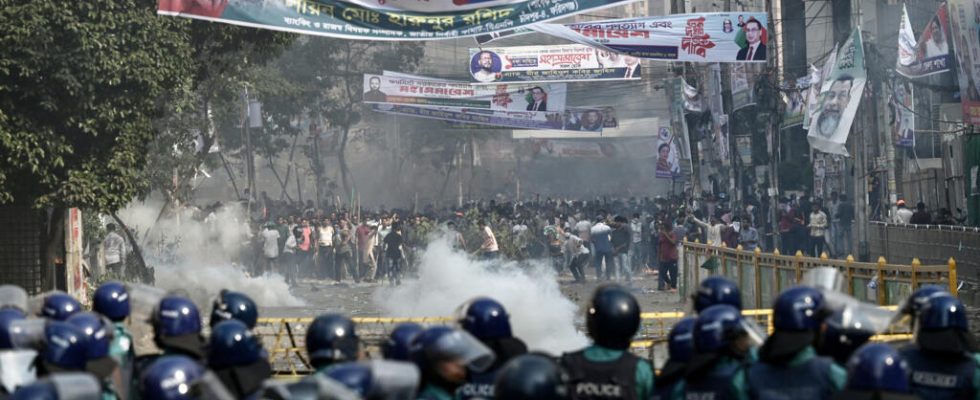In Bangladesh, several opposition protests led to violent clashes in the capital Dhaka, which led to the death of a police officer and the injury of 20 protesters. This comes less than three months before the legislative elections, and the opposition says it fears that they will not be held fairly.
1 min
With our regional correspondent, Sébastien Farcis
The Bangladeshi capital was transformed into a battlefield this Saturday, October 28.
The main opposition party, the Islamists and nationalists BNP, deployed more than 100,000 supporters in the streets to call for the release of their leader, Khaleda Zia, placed under house arrest after a conviction for corruption. And above all to demand the resignation of the Prime Minister Sheikh Hasinaand the formation of a neutral interim government which would be responsible for organizing the January elections.
Protesters there confronted more than 10,000 police officers, throwing stones and bricks, with the latter responding with tear gas and stun grenades. One officer died of a head injury and dozens of protesters were arrested.
At the same time, the Islamist organization Jamaat-e-Islami, an ally of the BNP, deployed its activists for an unauthorized side demonstration in Dhaka, with the aim of putting pressure on the government. The latter refused these demands, and the BNP therefore called for a general strike this Sunday, which could lead to a new wave of violence in Bangladesh.
